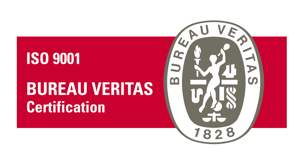Article

Right to patent in France - Non-employed inventors
Two new articles of the French Law, in force since December 2021, provide the automatic devolution of economic rights of intellectual property on software and their documentation (L113-9-1 CPI) and on inventions (L611-7-1 CPI), from a non-employed inventor to a host legal person.
These two new articles intend to solve the problem of the ownership of IP rights that could be devoted, according to the previous usual caselaw, to an intern for example, when the intern has been welcomed by a host lab. In the absence of any contractual clause for the reversion of IP rights, the previous caselaw tended to consider indeed that the IP rights belonged to the trainee.
Many countries apply specific provisions for determining the ownership of assets developed within a company or within a public agency.
In particular, the French law (L611-7 CPI) governs the ownership of inventions made by an employee. Three categories of inventions are defined.
Mission inventions
Inventions made by an employee within the framework of an employment contract comprising an inventive mission belong to the employer. Inventions made by an employee as part of studies and research which were explicitly entrusted to the employee also belong to the employer. The employee receives additional remuneration.
Non-mission inventions
Inventions made by an employee outside of an employment contract, and outside the tasks that are explicitly entrusted to the employee, belong, in principle, to the employee.
Attributable non-mission inventions
However, when such an invention is made by an employee who has no specific mission to invent (not an engineer according to the employment contract typically), either in the course of the performance of his duties, or in the field of the company's activities, or by the knowledge or use of techniques or means specific to the company, or data provided by it, the employer has the right, under specific conditions and time limits, to be granted the ownership of the right to patent. As a compensation, the inventor receives a ‘fair price’.
What is an “employee”?
The exact meaning to be given to the term “employee” has long been the subject of legal debate.
According to constant case law, a strict interpretation had to be retained. An employee is a person having an employment contract governed by French law at the date of the invention, and being subject to a hierarchical prescription in return for a salary.
The result of this narrow interpretation is that, in France, inventions made by a trainee, a foreign doctoral student or an emeritus professor or director used to belong to the inventor. This could not be circumvented simply by internal regulations which provide for an automatic transfer of inventions.
Devolution of economic rights of assets made by non-employed inventors
This former case law is now completely overturned by ordinance No. 2021-1658 of December 15, 2021, in force since December 16, 2021. This ordinance introduces two new articles dealing with the devolution of economic rights of intellectual property on software and their documentation (L113-9-1 CPI) and on inventions (L611-7-1 CPI).
These new articles aim to create a legal framework allowing an automatic devolution of the economic rights of intellectual property on software and of industrial property rights on inventions made by natural persons within and with the means of a host legal person, within the framework of the missions and activities entrusted to them.
They align the framework of such devolution with that applicable to employees and public officials and, in doing so, provide legal certainty to all stakeholders.




























